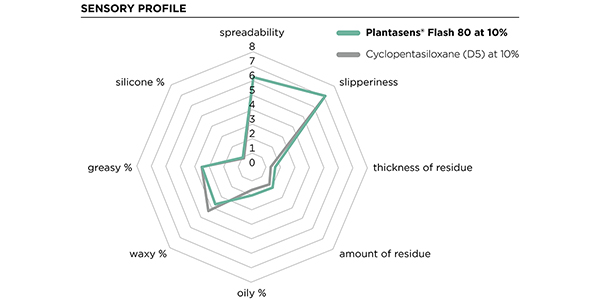Promotional Features
Beyond “wellcare”: Bringing together natural beauty trends for people and the planet
Perhaps more than almost any other fast-moving consumer goods sector, the beauty industry is guided by trends and, as we fast approach the next decade, the key latest, and evolving, trends reflect the two ends of our modern social spectrum.
On the one hand, a large group of consumers is embracing technology, and an ever more digital future, in their beauty and personal care. This includes the development, and introduction, of try-on apps for make-up and hair coloring and skin and hair analyser apps that identify specific consumer needs and suggest what is best for an individual.
At the other end of the spectrum others are taking a more back to basics approach, viewing beauty as a factor of wellness and balance where health and beauty come together. This group is looking for more natural and safer ingredients in the personal care products they apply to their skin and hair both for safety and to understand the impact of ingredients on the environment. Transparency is key.
Wellness, naturals and sustainability
Wellness, according to the 2018 Global Wellness Economy Monitor - October 2018, is a US$4.2 tn industry and the report’s data shows that the wellness economy grew at nearly twice the rate of global economic growth (3.6%) increasing by 12.8% from 2015 to 2017. Personal care and beauty represent almost a quarter of this spend at US$1.082 tn.
Within personal care and beauty, an increasing demand for preventive health measures and general well-being has led to a healthcare product and service sector that the professional advisory consultancy PwC has defined as the “new health economy”, based around “wellcare” products that are natural, pharmaceutical and non-prescription, aimed largely at preventive care, nutrition, fitness and cosmetic enhancement.
As this focus on “Well-Care” increases, further blurring the line between health and beauty, it’s expected that there will be an increase in products featuring organic and plant-based ingredients. Interest in plant-based ingredients is already a major trend across both food and beauty and responsible and ethical sourcing plays a large role in ensuring the sustainability of raw materials.
The UK Organic Soil Association has identified several key consumer themes shaping the “Well-Care” industry this year, and beyond. These include: beauty sleep, anti-pollution innovation, self-care, category blurring, ethics and beauty without compromise. The Association’s CEO, Martin Sawyer, says continued growing demand for more natural and ethically sourced products makes 2018 the year that “wellcare” moved into the mainstream, “the certified organic and natural sector continued to lead this growth as more consumers wanted to be sure that what they were buying delivered on trust, integrity, sustainability and benefited the wider environment.”
Partnerships and transparency for people and nature
In addition, it is clear that consumers are seeking more transparency when it comes to their personal care products.
To address this, many brands are already employing vertical integration by working with, and basing their businesses on, farms or forming partnerships with associations and companies to source and improve ingredient sustainability, and to develop new ingredients.
Clariant offers a natural source of inspiration within its Personal Care portfolio – Plantasens , plant-based silicone alternatives, multi-functional emulsifiers and a broad selection of emollients - ranging from vegetable oils, nature waxes and natural butters to alternatives to silicones, petrolatum and lanolin - to help develop more natural cosmetic products. The company recently introduced Plantasens Flash 80 and 100, as highly effective, more environmentally friendly silicone alternatives than cyclopentasiloxane (D5) and isohexadecane. The two ingredients represent a major milestone for formulation development as they are more sustainable, versatile and cost-efficient, high-performing and deliver comparable, or superior, results to traditional silicones. These ingredients have been made possible through Clariant’s long-standing collaboration with Elevance Renewable Sciences, with expertise in producing novel, high-performing specialty chemicals from plant oils using a Nobel Prize winning metathesis catalyst technology. In another recently announced partnership to source plant-based actives, Clariant is working with the Martina Berto company in Indonesia, enabling access to a full range of exotic plant extracts from Indonesian biodiversity under the Plantasens Berto label.
With this partnership, Clariant is able to source a full range of exotic plant and fruit extracts, including unique South East Asian plants such as Java and orthosiphon leafs, etc with the potential to explore and invent new sustainable solutions globally. Building on the expertise of Martina Berto, Clariant will enhance its capabilities as a “nature expert” growing its already successful collaborations with Beraca in Brazil and BioSpectrum, also in Asia. In addition, Clariant has built a natural portfolio including ingredients from the Mediterranean biome, and utilizes responsibly sourced cold-pressed oil native to the sunny windswept African highlands.
Since its establishment, Martina Berto has focused on producing innovative cosmetic products by combining the wisdom of local culture and research carried out on various medicinal, cosmetic and a romatic plants from nature. In an attempt to be as transparent and sustainable as possible, Martina Berto is a signatory to the UN Global Compact, addressing challenges such as sustainable consumption and production, and a strong pillar of the company’s commitment is their “Green Movement Program” that focuses on a partnership with the local farmer community, providing guidance on how to explore natural resources in a sustainable manner and to improve local quality of life. “We’re very excited about our work with Martina Berto as our collaboration is based on our common enthusiasm for 100% natural ingredients and to make use of the great biodiversity of Indonesia in a sustainable way, further strengthening our goal towards sustainable ingredients and boosting our natural based innovations,” said Francois Bleger, Head of Clariant Business Unit Industrial & Consumer Specialty, Asia Pacific Region.
Clariant’s drive and commitment towards sustainability and ingredient traceability, with partners such as Beraca, Martina Berto, parallels market research showing the growing consumer expectation that brands will adopt both. PwC’s The Rise of Wellcare Report 2018 outlined research that 59% of people globally believed it was important for businesses to adopt the U.N.’s Sustainable Development Goals, with some of the largest responses in favor of sustainability coming from emerging markets, including Argentina, Brazil, India and South Africa. Some of these countries are expected to have larger economies, measured by gross domestic product and purchasing power parity, than any of the G7 nations by 2030, making the opinions of their consumers important to recognize.
Trends further into the future
Looking further ahead, there are predictions that agricultural technology, or agtech, and beauty and wellness will converge on a more mainstream level with next-generation farms, management software and robotics aiding in sustainable ingredient sourcing and increasing speed-to-market for key ingredients in beauty products. Beyond sourcing, it’s also predicted that personal care brands may use their agtech partnerships to encourage agro-beauty-tourism in which customers can interact with farmland where ingredients are grown and understand the beauty production process.
Further into the future there is speculation that CRISPR gene editing technology could play a huge role in beauty ingredient production, potentially helping farmers to grow pathogen-resistant crops or creating new species of plants. CB Insights Beauty Trends Report 2018 thinks such benefits could translate to the production of ingredients for natural cosmetics and personal care products.
What is clear is that whether technology driven or naturally inspired, the beauty-personal care-wellness industry is currently in a state of disruption. There is no doubt that experimentation with AI and digital advances will continue, and with the further blurring of boundaries between health and beauty, focused as much on what we put in our bodies as on them, customers will continue to drive this market segment for naturals and transparency as part of the broader “wellcare” economy. Clariant is taking steps to make its commitment more visible internally and externally in the field of natural cosmetics so watch this space for where 2020 takes us.
For more information, please click here.





